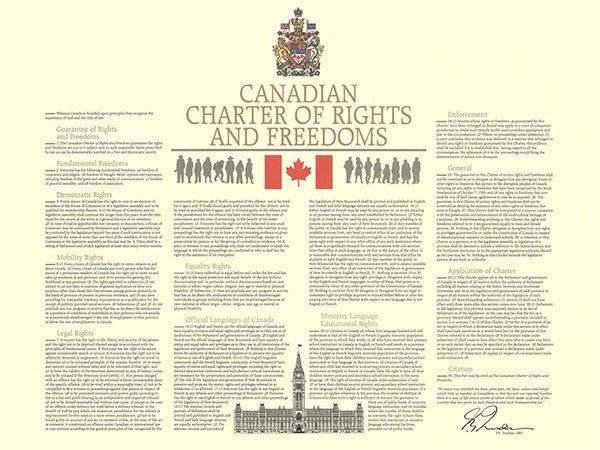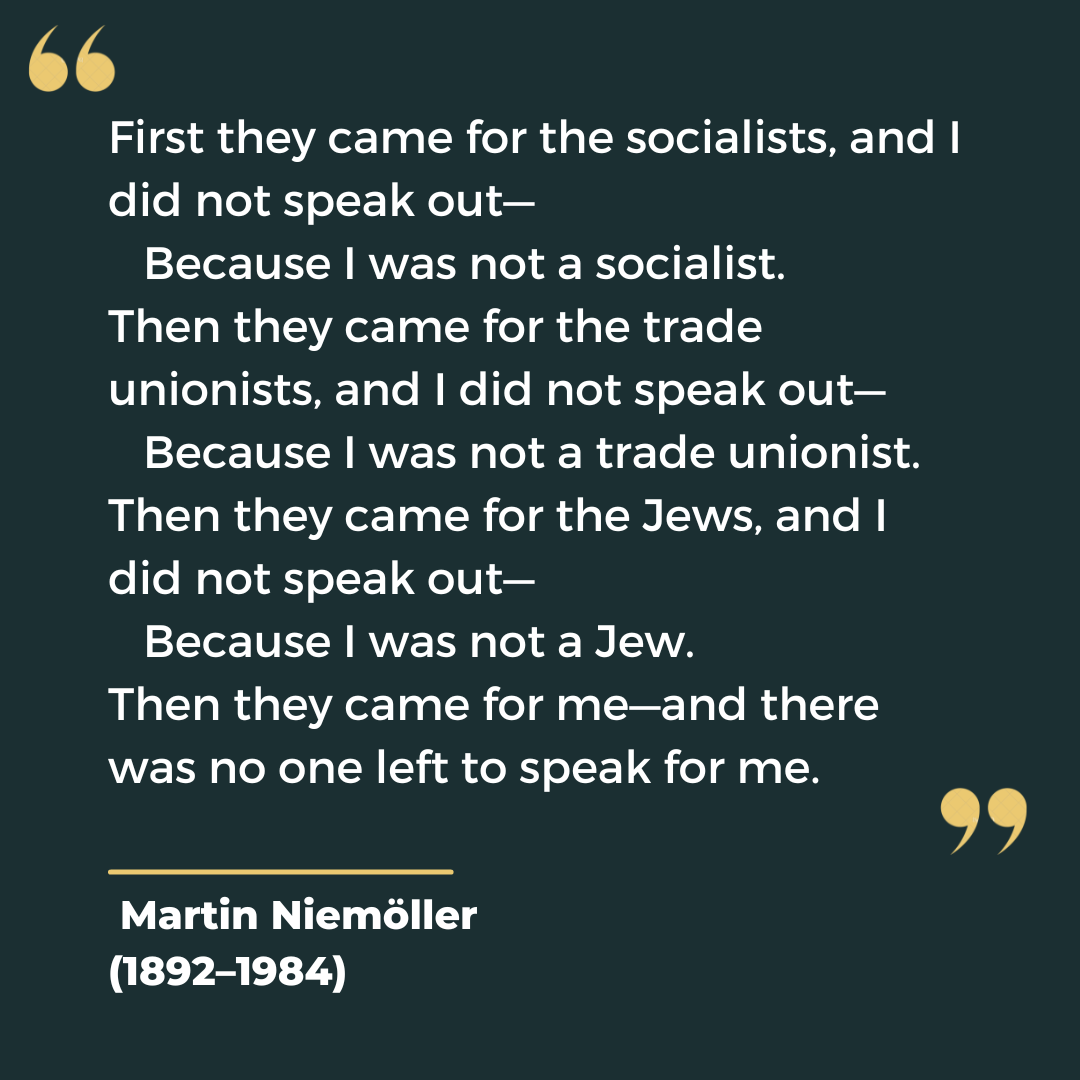A line in the sand

When I was a teenager, I had the Canadian Charter of Rights and Freedoms on my bedroom wall. It had pride of place right next to pinups of Duran Duran and Corey Hart. As an immigrant and racialized person, it appealed to me. The idealism of everyone being equal and having the same rights made sense to my analytical mind and stood in contrast to the baffling prejudices I experienced in my daily life.
Although Canada was founded in 1867, the Charter of Rights and Freedoms was patriated only in 1982. It was authored by the first ministers– the Prime Ministers and Premiers of the ten provinces. Of course, the final deal was determined by a group of white men ensconced in a room. In this case, the room where it happened was the kitchen of a conference centre.
A key part of the deal was the inclusion of Section 33, the notwithstanding clause, which allows parliament, provincial or territorial legislature to declare a law to be exempt from the Charter of Rights and Freedoms. It was added because provinces did not want their authority diminished. As envisioned, Section 33 would be used only in exceptional circumstances after fulsome debate about the trade offs between group and individual rights. It was a compromise– not ideal, but it got the job done. I'm confident that Charter would not have passed without it.
Today, I want to Queen's Park, the Ontario legislature to defend the Canadian Charter of Rights and Freedoms.
On Friday, we defend the constitution and human rights.
— Susan Sim, Ph.D. (@benevolentprof) November 4, 2022
“When you're living on your knees, you rise up
Tell your brother that he's gotta rise up
Tell your sister that she's gotta rise up” -Hamilton pic.twitter.com/Kif6WaINor
Yesterday, the Ontario government passed legislation to prevent a labour union from going on strike. As I wrote previously, Bill 28 preemptively invokes the notwithstanding clause. In other words, the government knew that the law violates the rights in Sections 3, 7, and 15 of the Charter, and they were going to do it anyways.
The bill was rushed through in less than a week. There was no court challenge. There was no public debate. They hadn't even exhausted all of the mechanisms for bargaining with a union. It was just bullying. The government has crossed a line in the sand.
So you can see why a kid who was enamoured with the Charter had to show up to protest. Normally, labour negotiations are messy. If the answer was clear, the dispute would be resolved before there's any coverage in the media. But the invocation of the notwithstanding clause changed the calculus of the dispute. Whereas percentage wage increases are negotiable, charter rights are fundamental.
If Charter Rights and Freedoms can be taken away when they are inconvenient for a government, then no one is safe.

Today's protest included parents, children, and representatives from many unions, including 5 unions that endorsed the Progressive Conservative Party of Ontario in the last election in the spring. The atmosphere was festive– there was music, an African drum circle, a conga line, and an activity tent for kids. There was a picket line around Queen's Park and eventually traffic was stopped entirely on Queen's Park Crescent. I saw Fred Hahn and got to talk to Laura Walton.
Forty years later, the Charter does show its age. For example, the opening sentence is: "Whereas Canada is founded upon principles that recognize the supremacy of God and the rule of law..." If we were writing the Charter today, we probably wouldn't use this language.
More significantly, we collectively have changed. Politics is less collaborative, and more about scoring points. Disputes were more genteel in the 1980s and 1990s. It felt like parties across the political spectrum were working towards a common goal of a better Canada. We might disagree on how to get there, but at least we agreed on the project. When a right-of-centre party was elected, it didn't feel like an existential threat. It felt like letting another member of the family choose what we were having for dinner. It sounds quaint now.
I don't even know how to charitably describe right-of-centre parties today. It's not just that they have different ideas about fiscal policy or the speed of social change, but rather we are living in different worlds with alternative facts, personal attacks rather than policy proposals, and different bounds of good behaviour. To be clear, I'm talking about only Canada in the current article. But this fracturing is playing out all over the world.
We probably wouldn't be able patriate a Charter of Rights and Freedoms today. Or even amend it to remove the British monarchy as the head of state, to add protections for sexual orientation, or to remove the notwithstanding clause.
This dispute will play out in the coming days. The union called the gather today a political protest and not a strike. No one has been charged under the new law. Prime Minister Trudeau has expressed his disapproval of the law. It may be referred to the Supreme Court of Canada. Separately, a transit union has called a strike for Monday. The hashtag #generalstrike was trending on Twitter. Stay tuned.
